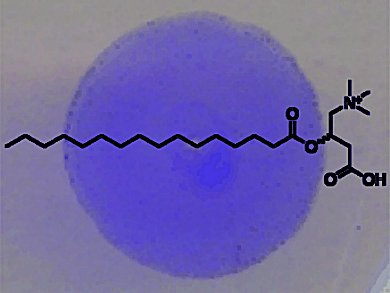Bacteria growing in biofilms are often in metabolic and physiological states that do not respond well to antibiotics, and thus, are major contributors to chronic diseases. Biofilm inhibitors, therefore, have the potential to be used alone or as adjuvants to conventional antibiotic therapies.
The protein kinase C inhibitor, palmitoyl-dl-carnitine (pdlc), is a micromolar-range inhibitor of biofilm formation, and affects multiple processes shown to be of importance to biofilm development of Pseudomonas aeruginosa. P. aeruginosa is a prominent cause of chronic infections in individuals with cystic fibrosis (CF) as well as in immunecompromised patients and burn victims.
Lori L. Burrows and colleagues, McMaster University, Hamilton, ON, Canada, show that pdlc has potential utility as an antibiotic adjuvant, not only by blocking aminoglycoside-mediated biofilm stimulation but also by preventing bacteria from entering a biofilm state that is tolerant of conventional antimicrobials. Since the pdlc blocks biofilm formation by a combination of mechanisms, resistance to its effects is less likely to arise.
- Palmitoyl-dl-Carnitine is a Multitarget Inhibitor of Pseudomonas aeruginosa Biofilm Development,
Iwona B. Wenderska, Matthew Chong, James McNulty, Gerard D. Wright, Lori L. Burrows,
ChemBioChem 2011, 12, 2759–2766.
DOI: 10.1002/cbic.201100500




